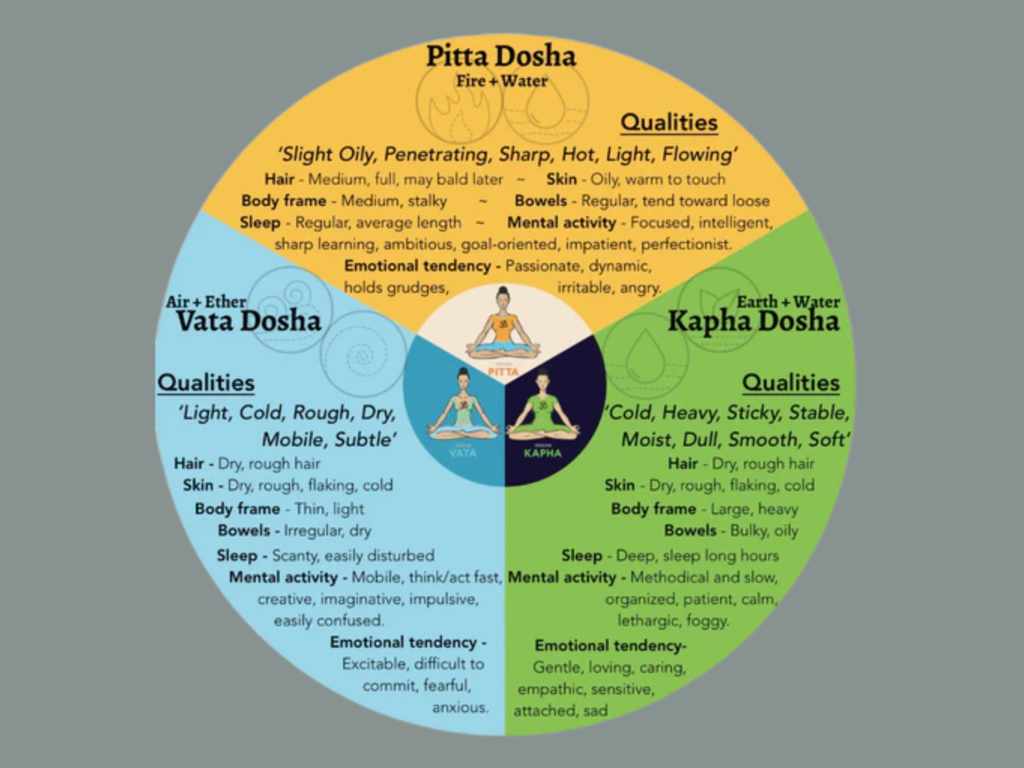Improve Your Wellbeing with Ayurveda: Ancient Wisdom for Sustainable Health and Balance:
I’m heading back to my roots to explore how to incorporate Ayurvedic ancient knowledge to empower my coaching clients.
I have always felt a deep connection to the ancient healing modalities from traditional Chinese medicine through to indigenous Australian bush medicine. Being Sri Lankan, my passion and curiosity for Ayurvedic medicine and philosophy has always been strong.
We booked a workshop with Dr. Subajanane Jeyanthan to get an expert’s insight into Ayurveda and how it relates to wellbeing coaching. Dr. Subajanane Jeyanthan is an Ayurvedic Doctor and healer who is dedicated to sharing her passion and knowledge of Ayurvedic healing treatments, and incorporating food as medicine for optimising health and wellbeing.
Ayurveda 101: An Ancient Guide to Modern Wellbeing and Sustainable Health
In a world obsessed with quick fixes and one-size-fits-all health trends, Ayurveda offers something refreshingly different: a personalised, deeply holistic approach to wellness. Often called the “science of life,” Ayurveda is an ancient Indian system of healing that goes beyond just treating symptoms—it focuses on the root cause of imbalance, aiming to bring harmony to the body, mind, and spirit.
But how does something with roots stretching back over 5,000 years fit into our fast-paced, modern lives? And more importantly, how can Ayurveda help us feel better, think clearer, and move through our days with more energy and intention?
In this article, we’ll break down the basics of Ayurveda, dive into the fascinating concept of doshas and how they influence our preferences and behaviours, and explore how we can apply Ayurvedic principles to create sustainable wellbeing practices.
Let’s begin.
What is Ayurveda? A Holistic Science of Life
At its core, Ayurveda sees health as a state of balance—balance between our inner world and the outer environment, and balance among the different systems within our body. Unlike conventional medicine, which often focuses on isolated symptoms, Ayurveda zooms out to see the whole person.
Imagine your health as a garden. Western medicine might focus on treating one wilted leaf, while Ayurveda looks at the soil, sunlight, water, and environment that are affecting the entire plant.
Ayurveda teaches that everything in the universe—including us—is made up of five elements:
- Earth (Prithvi): Stability, strength, and grounding
- Water (Jala): Flow, cohesion, and adaptability
- Fire (Tejas): Transformation, digestion, and energy
- Air (Vayu): Movement, creativity, and lightness
- Space (Akasha): Expansion, stillness, and openness
These elements combine uniquely in each person to create their dosha—a unique constitution that influences everything from physical traits to emotional tendencies and even how we respond to stress.
Understanding our dosha is like getting the user manual for our body and mind. It tells us what fuels us, what drains us, and how we can optimise our energy, health, and happiness.


The Three Doshas: Vata, Pitta, and Kapha
Ayurveda categorises people into three main doshas: Vata, Pitta, and Kapha. Most people have one dominant dosha, though everyone has elements of all three.
- Vata: The Creative Dreamer
- Elements: Air and Ether
- Traits: Light, quick, dry, and mobile
- Body Type: Lean, light frame; prone to dry skin and cold hands/feet
- Personality: Creative, enthusiastic, and spontaneous
- When Balanced: Vata types are imaginative, lively, and full of energy.
- When Imbalanced: They may feel anxious, scattered, or overwhelmed.
- Create a daily routine with consistent sleep and meal times.
- Eat warm, nourishing foods (think soups, stews, and herbal teas).
- Practice grounding activities like meditation or gentle yoga.
- Pitta: The Driven Achiever
- Elements: Fire and Water
- Traits: Hot, sharp, and intense
- Body Type: Athletic, medium build; prone to oily skin and a warm body temperature
- Personality: Driven, focused, and competitive
- When Balanced: Pitta types are confident, organised, and productive.
- When Imbalanced: They can become irritable, stressed, or overly critical.
- Incorporate cooling foods like cucumbers, leafy greens, and coconut water.
- Prioritise relaxation practices such as restorative yoga or time in nature.
- Avoid over-scheduling or perfectionism.
- Kapha: The Calm Stabiliser
- Elements: Earth and Water
- Traits: Heavy, steady, and cool
- Body Type: Solid, larger build; prone to smooth skin and thick hair
- Personality: Calm, nurturing, and patient
- When Balanced: Kapha types are reliable, compassionate, and grounded.
- When Imbalanced: They may feel sluggish, resistant to change, or emotionally stagnant.
- Prioritise energising activities like brisk walking or dancing.
- Eat light, warm foods with spices like ginger or turmeric.
- Step out of comfort zones and embrace new experiences.


How Understanding Your Dosha Optimises Wellbeing
Your dosha is more than just a personality quiz result—it’s a window into understanding your natural preferences, strengths, and challenges.
- Food as Medicine
In Ayurveda, food isn’t just fuel; it’s medicine. Eating according to your dosha can optimise digestion, boost energy levels, and improve mental clarity.- Vata types need warm, nourishing foods to feel grounded.
- Pitta types benefit from cooling, hydrating foods to avoid overheating.
- Kapha types thrive on lighter, spicier meals to prevent sluggishness.
When we eat in alignment with our dosha, our body functions better, our mind feels clearer, and our energy flows more consistently.
- Routines Build Resilience
Ayurveda places a big emphasis on dinacharya—daily routines that align with our natural circadian rhythms. This might include:- Waking up with the sunrise
- Eating meals at consistent times
- Practicing daily self-care rituals like oil massage (abhyanga) or breathwork (pranayama)
Small, consistent habits tailored to your dosha create powerful ripples of health and wellbeing over time.
- Mind-Body Connection is Everything
In Ayurveda, the mind and body aren’t separate—they’re deeply intertwined. If our digestion is off, our mood will likely suffer. If we’re emotionally stressed, our body will feel it.
For example:- A Vata imbalance might manifest as anxiety and bloating.
- A Pitta imbalance could show up as irritability and acid reflux.
- A Kapha imbalance may feel like sluggishness and emotional overeating.
When we address physical imbalances through diet, movement, and self-care, our mental health improves—and vice versa.
Ayurveda and Sustainable Wellbeing Practices
At its core, Ayurveda isn’t about restriction, guilt, or rigid rules—it’s about awareness and balance.
Here are a few simple ways to integrate Ayurvedic principles into your wellbeing routine:
- Listen to Your Body: Tune into how different foods, activities, and environments make you feel.
- Eat with Intention: Make meals a ritual, not just a task. Chew slowly, savour flavours, and avoid distractions while eating.
- Prioritise Rest and Reflection: Build moments of stillness into your day, whether it’s through meditation, journaling, or a quiet walk.
- Adapt Seasonally: Ayurveda teaches us to adjust our routines with the seasons, eating warming foods in winter and lighter foods in summer.
The Big Picture: Ayurveda for Modern Life
Ayurveda isn’t about achieving a state of perfect health. It’s about creating harmony, one choice at a time. It’s about understanding your natural rhythm, honouring your needs, and showing up for yourself with compassion and consistency.
When we eat foods that nourish us, rest when we’re tired, and move in ways that feel joyful, we don’t just feel better—we become better. Our minds are clearer, our energy is steady, and our ability to show up in the world with peace and purpose expands.
In a world that often pushes us to do more, Ayurveda reminds us to be more.
So whether you’re a wellness enthusiast, a wellbeing coach, or someone simply looking to feel better in your body and mind, Ayurveda offers timeless wisdom for modern challenges.
Because true wellness isn’t just about living longer—it’s about living better.
Your journey to balance starts with awareness. Which dosha do you see most in yourself?
Want to Learn More About Your Dosha?
If you would like to learn more about your dosha and the power of Ayurveda you can start your journey with these sites:
- Oneworld Ayurveda Free Dosha Quiz: This quiz helps identify your predominant dosha, offering guidance on achieving balance through diet and lifestyle. Link
- Svabodha Wellness Dosha Quiz: Rooted in over 5,000 years of Ayurvedic wisdom, this quiz offers an instant understanding of your doshas based on your current state of health. Link
For more resources and information, explore Nutrixia’s Dosha Test Blog.
While these online quizzes can provide a general understanding of your dosha, consulting with a qualified Ayurvedic practitioner is recommended for a comprehensive assessment and personalized guidance. You can book a consultation with Dr. Subajanane online through her website here







